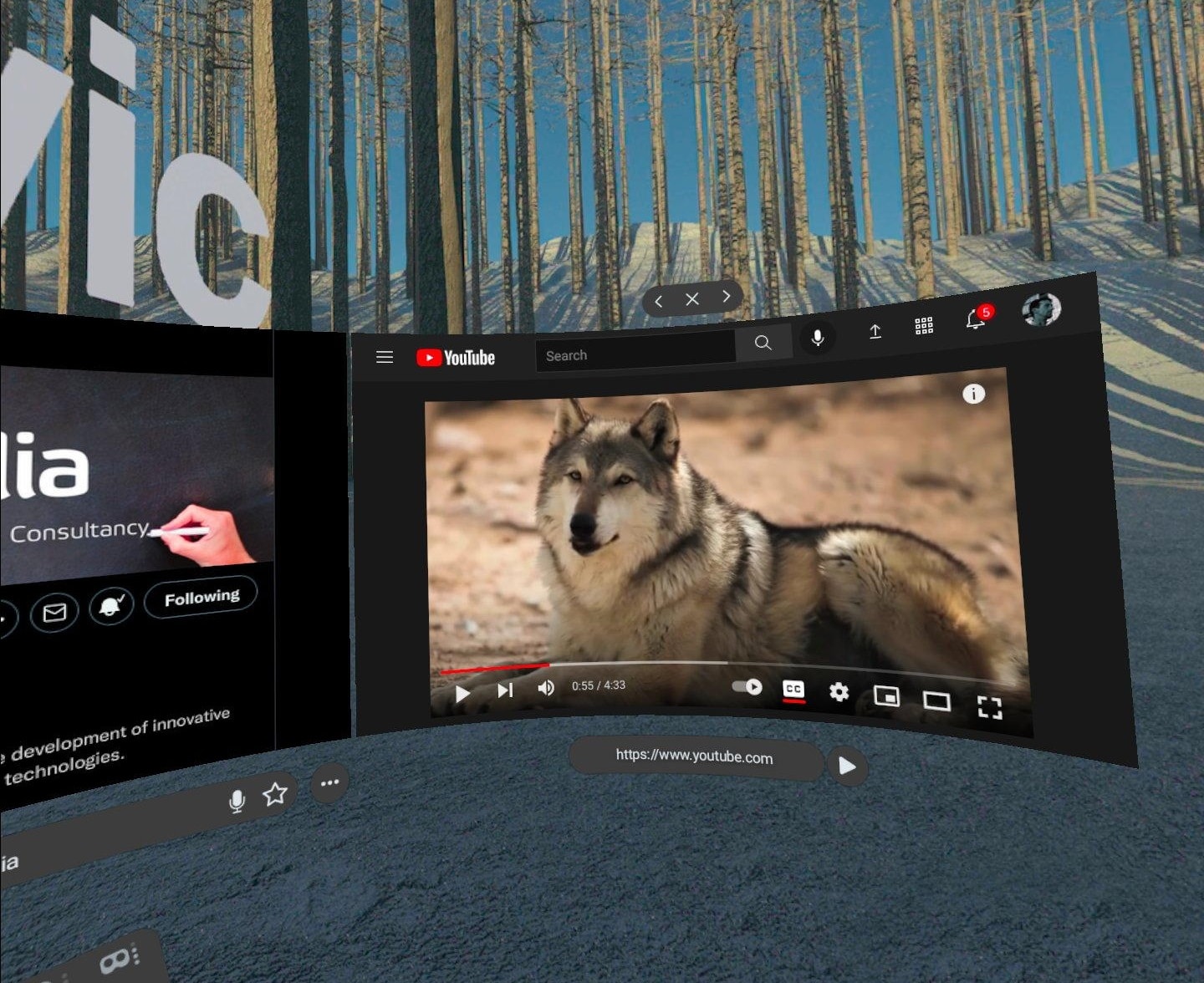
When Mozilla released Firefox Reality many were excited for the opportunity to see the browser in a virtual reality environment, as time passed the only thing that was confirmed to us with this project is the same thing that has been happening with most Mozilla projects and it's officially over, as the company announced that it scrapped the project and gave it to another company to develop and manage.
Despite this bad news, Firefox Reality will live on now under “Wolvic”, which will soon be released in the coming weeks. However, Mozilla's VR browser is something the company has to let go of.
The company that will be in charge of project development is igalia, a major developer known for her contributions to open source projects such as GNOME, GTK, WebKitGTK, Epiphany, GStreamer, Wine, Mesa, and freedesktop.org.
wolvic, will be developed as an open source web browser and as it was already announced, it will continue with the Firefox Reality project, it is designed for use in virtual reality systems.
“The Firefox Reality project was created […] to give users choice and ensure that unlimited open access to the web remains strong on these devices,” said Brian Kardell, Developer Advocate at Igalia. “These ideas are fundamental to what we do at Igalia, so we are delighted to be able to carry the torch forward and build on that work to create a new browser, Wolvic. Together, we will help ensure the web ecosystem remains healthy."
About Wolvic
The Navigator uses the GeckoView web engine, a variant of Mozilla's Gecko engine packaged as a separate library that can be updated independently. LManagement is carried out through a three-dimensional user interface fundamentally different, allowing navigation through sites within the virtual world or as part of augmented reality systems.
In addition to a helmet-controlled 3D interface that lets you view traditional 2D pages, web developers can use the WebXR, WebAR, and WebVR APIs to create custom 3D web applications that interact in virtual space. It also supports viewing space videos taken in 360-degree mode on a 3D headset.
Management is done through VR controllers, and data entry in web forms through a virtual or real keyboard. Of the advanced mechanisms for interaction with the user that the browser supports, the voice input system stands out, which allows filling in forms and sending search queries using the voice recognition engine developed by Mozilla.
As a home page, the browser provides an interface to access selected content and navigate through a collection of games, web applications, 3D models and 3D videos adapted to 3D headsets.
At Igalia we believe that the Web is important to the XR space in a number of ways. XR systems that provide an immersive operating system need web browsers to be a part of that. Entering a "reality" without access to everything that already exists on the Web would be pretty terrible.
Additionally, WebXR opens up new avenues for browsing, sharing and experiencing information powered from within the browser itself. Reimagining a browser for an immersive operating system is new ground, and that newness means that browser choice is currently limited.
As major contributors to major web engines, maintainers of some official WebKit ports, contributors to various browser projects, and experts in multimedia, graphics, and embedded systems, we believe we are well suited to take on this task.
Finally if you are interested in knowing more about it, you should know that Wolvic's code is written in Java and C++ and is released under the MPLv2 license.
Already in ready builds from Wolvic's first pre-release built for the Android platform and compatible with Oculus headsets, Huawei VR Glass, HTC Vive Focus, Pico Interactive, and Lynx 3D. Work is underway to port the browser for Qualcomm and Lenovo devices.
You can check more about it In the following link.